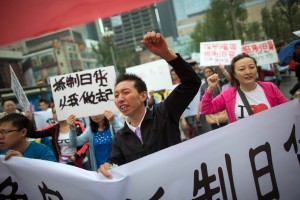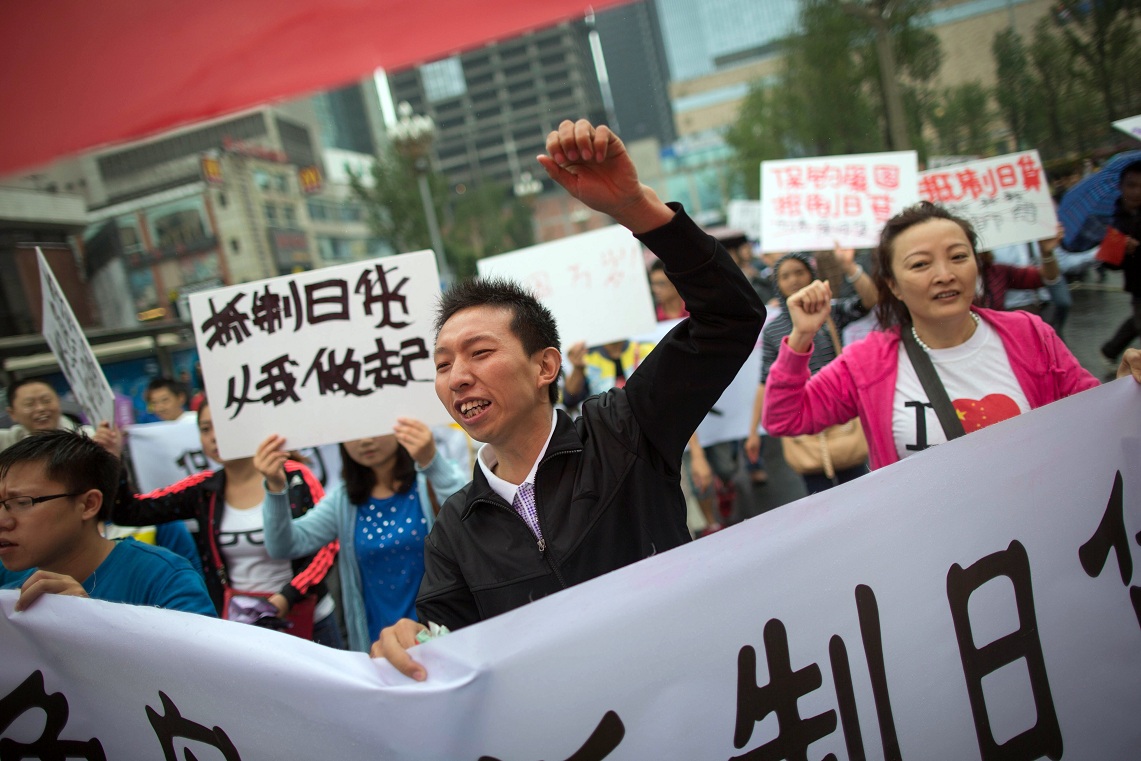
AFP PHOTO
Japanese businesses have announced temporary halts to production at plants in China due to a wave of anti-Japanese demonstrations that have ripped across China in recent days.
Prominent brands and companies announced the temporary closure of China-based factories after recent protests following Tokyo’s announcement of its purchase of a disputed island chain from China. The islands, known as the Senkaku Islands in Japan and the Diaoyu Islands in China, were the source of a longstanding territorial dispute between the two nations.
Throughout the past week Chinese in different parts of the country demonstrated in front of Japanese missions and attacked and looted Japanese businesses. Demonstrators also attacked and burned Japanese-made cars.
In response, Honda announced that it would halt production of cars for two days starting Tuesday, according to Reuters. Mazda said it would halt production in its Nanjing factory, while Panasonic announced that a plant vandalised by Chinese workers would remain closed. Canon claimed it would half production at three of its four Chinese factories on Tuesday. Seven & I Holdings announced its closure of 13 supermarkets and 198 convenience stores, effective Tuesday, while Fast Retailing closed some outlets, indicating it may close more in the event of more protesting. Sony strongly discouraged its employees from non-essential travel to China.
US Defence Secretary Leon Panetta, who was in Tokyo on Monday, called for diplomatic efforts to resolve the island dispute and domestic unrest. “We believe good relations between Japan and China benefit everyone in the region,” Peter Velasco, Press Officer at the US State Department, told Daily News Egypt. “The United States does not take a position on the question of ultimate sovereignty of the Senkaku Islands. We expect the claimants to resolve the issue through peaceful means, among themselves.”
Japan and China are significant business partners, with bilateral trade last year reaching almost $350 billion. In 2011, China imported more from Japan than any other country, while Japan was the fourth largest consumer of Chinese goods in the world.
Although China claims to have discovered and controlled the islands as early as the 14th century, Japan retained official control of them in 1972 after the United States had overseen them following Japan’s surrender in World War II. The uninhabited islands sit on top of an area thought to be rich in oil and mineral resources.
Many are anticipating reinvigorated anti-Japan protests on 18 September, the 81st anniversary of the Manchurian Incident, which led to Japan’s invasion and occupation of northeastern regions of China.

